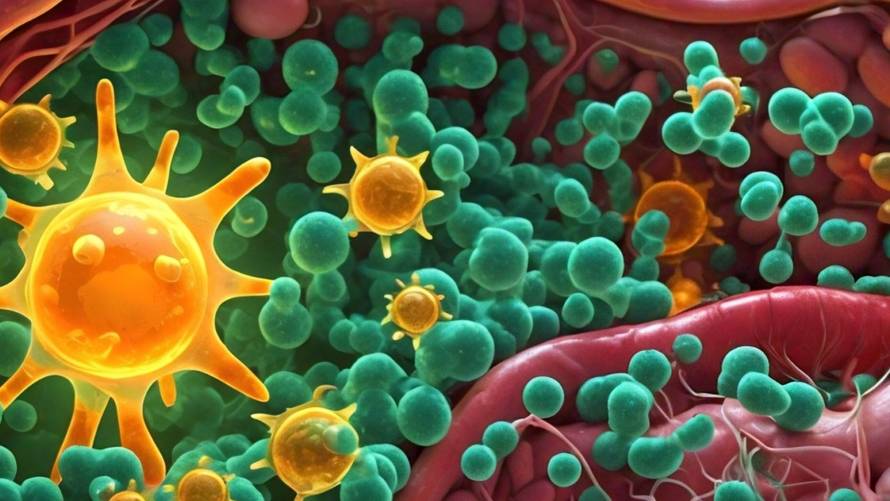A new study in mice has revealed that dietary vitamin D can modulate the gut microbiome to enhance the response to cancer immunotherapies. The findings shed light on the poorly understood connection between vitamin D and immune responses to cancer via gut bacteria, suggesting that vitamin D levels could serve as a potential determinant of cancer immunity and immunotherapy success.
The Role of Vitamin D in Immune Modulation and Gut Health
Vitamin D is known to play a crucial role in immune modulation and shaping the gut microbiome. Studies have also investigated the micronutrient’s role in cancer immunity, as it has been linked to lower incidence of tumors, decreased mortality for several types of cancers, and improved responses to immune checkpoint inhibitor (ICI) treatments. However, the exact mechanisms by which vitamin D affects the success of cancer immunotherapy and whether this effect involves the immune system and/or the microbiome remain unclear.
Vitamin D Favors Beneficial Gut Bacteria
Through genetic and dietary manipulation in mice, Evangelos Giampazolias and colleagues found that increased vitamin D bioavailability leads to changes in the microbiome that favor Bacteroides fragilis, an anaerobic Gram-negative bacterium found in humans and mice. The increase in B. fragilis enhanced immune-mediated resistance to cancer, including resistance to the development of melanomas and improved responses to ICI.
Remarkably, the authors discovered that this increased anti-cancer immunity could be transferred to other mice by fecal transplantation, highlighting the potential for microbial therapies in cancer treatment.
While Giampazolias et al. demonstrate a link between vitamin D activity and lower cancer incidence in humans, they note that longitudinal studies in humans are needed to further understand the interaction between vitamin D availability, dietary supplementation, the microbiome, and cancer immunity.
“The study of Giampazolias et al. highlights the important role of diet in the design of microbial therapies,” write Fabien Franco and Kathy McCoy in a related Perspective. “Future investigations will help delineate how microbes can be harnessed in conjunction with dietary interventions to unleash the full potential of ICI therapy.”
The findings of this study open up new avenues for exploring the potential of vitamin D supplementation and microbial therapies in enhancing cancer immunotherapy outcomes. As research continues to unravel the complex interplay between diet, gut health, and cancer immunity, personalized approaches to cancer treatment may become increasingly viable.


